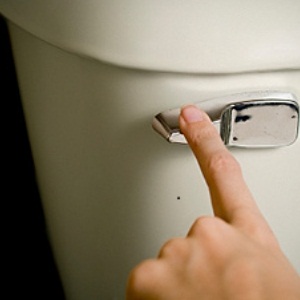
Summary
Shigella is a bacterium that causes the disease shigellosis. The disease is spread directly from person to person by the faecal-oral route and less frequently by contaminated food and water.
Symptoms include:
- watery diarrhea
- abdominal cramps
- fever
Dysentery, the passage of stool containing blood and mucus, may occur in severe cases. Shigellosis is a self-limiting disease and will resolve without specific treatment, but adequate fluids should be consumed to prevent dehydration. Anti-diarrhoea drugs that slow down bowel movements should be avoided and antibiotics should only be given for severe disease.
Shigellosis is very contagious and may spread rapidly and cause outbreaks. Personal hygiene and proper sewage disposal are important to prevent further spread.
Alternative names
- Bacillary dysentery
What is shigella?
Shigella is a bacterium that infects the gut and causes diarrhoea. It is spread directly from person to person by the faecal-oral route (from faeces to mouth via contaminated fingers). Disease can also spread indirectly via contaminated surfaces, for example by touching contaminated doorknobs, lavatory flush handles, washbasin taps and then touching the mouth without washing hands.
Droplets containing shigella bacteria are released into the air when an infected loose stool is flushed from the toilet and may then settle in the surrounding area and survive in a moist atmosphere for a few days. Food can become contaminated from the food handler’s hands and from water sources in communities without adequate sewage disposal. The disease is very contagious and spreads easily under conditions where there is close contact, and sanitation or personal hygiene insufficient, for example refugee camps and some child day care centres.
What are the symptoms of shigellosis?
A person infected with shigella will develop watery diarrhoea, lower abdominal cramps and fever within 2 - 3 days of exposure. The watery diarrhoea may progress to bloody and mucoid diarrhoea (dysentery) and lasts about four days. The severity of the disease is associated with the species involved, shigella dysenteriae being the most severe.
How is shigellosis diagnosed?
Shigellosis should be suspected if a person has dysentery and a fever. The diagnosis can be confirmed by collecting a stool specimen for culture of the organism in the laboratory.
How is shigellosis treated?
Re-hydration is very important in young children and the elderly. Antibiotics should not be given except for severe disease. Anti-diarrhoea drugs that slow down bowel movements should be avoided.
What is the prognosis?
The disease is self-limiting and usually resolves without specific treatment.
When to call your doctor
You should visit your doctor when you have severe diarrhoea, particularly if associated with blood and mucus in the stool and a fever.
How can shigellosis be prevented?
Shigellosis is very contagious and may spread rapidly and cause outbreaks. Personal hygiene, including handwashing after toilet use and before food preparation, is very important to prevent further spread. Disinfection of toilets and the surrounding environment contaminated with infectious droplets is also important.
With shigellosis diarrhoea, the faecal contamination of hands can be quite heavy and hand washing, although important, will only reduce the numbers of bacteria present. Therefore persons with diarrhoea should stay off work until the symptoms have subsided, especially when their work involves preparation of food or direct contact with other people.
Children with diarrhoea should not attend school or day care centres. Appropriate hand washing at day care centres is very important, especially when changing diapers. Scheduling supervised handwashing sessions before meals and after toilet use may reduce the spread of shigellosis and other germs that spread by means of the faecal-oral route.
Public health measures include good sewage systems and water purification to prevent further spread of germs causing diarrhoea within the community.




 Publications
Publications
 Partners
Partners















